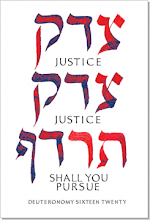According to Ask Moses http://www.askmoses.com/en/article/577,2089737/What-is-V-ten-Tal-Umatar-Livracha.html
This formal request for rain is inserted in the 9th blessing of the daily Amidah during the months that Israel is most in need of rain. In Israel this request is inserted commencing Cheshvan 7, following the opinion of Rabban Gamliel in the Mishnah, "fifteen days after the festival [of Sukkot] so that the last Jew [returning home from the festival] could reach the River Euphrates". In the Diaspora, this request is not added until December 4th, following the opinion of Chananiah in the Talmud "In the Diaspora [we do not begin to pray] until the sixtieth day after the [Tishrei] cycle". We do not insert this request at the beginning of the rain season (Shmini Atzeret), because the need for rain is not yet urgent enough to officially request it.I am in Israel at this time, and will be here until the beginning of Kislev. So the way I look at it, I will be "home free" from saying kaddish on the 7th of Marcheshvan and Mom's neshama will be "home," as she merited Gan Eden after 11 months less one day of kaddish.
Yay!!

No comments:
Post a Comment